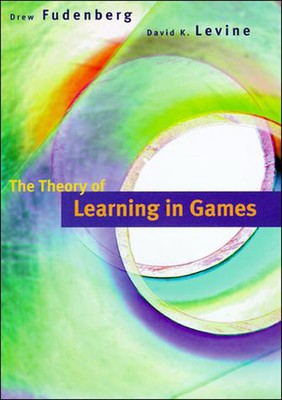
- We will send in 10–14 business days.
- Author: Drew Fudenberg
- Publisher: MIT Press
- ISBN-10: 0262529246
- ISBN-13: 9780262529242
- Format: 15.2 x 22.9 x 1.7 cm, softcover
- Language: English
- SAVE -10% with code: EXTRA
Reviews
Description
In economics, most noncooperative game theory has focused on equilibrium in games, especially Nash equilibrium and its refinements. The traditional explanation for when and why equilibrium arises is that it results from analysis and introspection by the players in a situation where the rules of the game, the rationality of the players, and the players' payoff functions are all common knowledge. Both conceptually and empirically, this theory has many problems.
In The Theory of Learning in Games Drew Fudenberg and David Levine develop an alternative explanation that equilibrium arises as the long-run outcome of a process in which less than fully rational players grope for optimality over time. The models they explore provide a foundation for equilibrium theory and suggest useful ways for economists to evaluate and modify traditional equilibrium concepts.
EXTRA 10 % discount with code: EXTRA
The promotion ends in 20d.18:03:16
The discount code is valid when purchasing from 10 €. Discounts do not stack.
- Author: Drew Fudenberg
- Publisher: MIT Press
- ISBN-10: 0262529246
- ISBN-13: 9780262529242
- Format: 15.2 x 22.9 x 1.7 cm, softcover
- Language: English English
In economics, most noncooperative game theory has focused on equilibrium in games, especially Nash equilibrium and its refinements. The traditional explanation for when and why equilibrium arises is that it results from analysis and introspection by the players in a situation where the rules of the game, the rationality of the players, and the players' payoff functions are all common knowledge. Both conceptually and empirically, this theory has many problems.
In The Theory of Learning in Games Drew Fudenberg and David Levine develop an alternative explanation that equilibrium arises as the long-run outcome of a process in which less than fully rational players grope for optimality over time. The models they explore provide a foundation for equilibrium theory and suggest useful ways for economists to evaluate and modify traditional equilibrium concepts.


Reviews